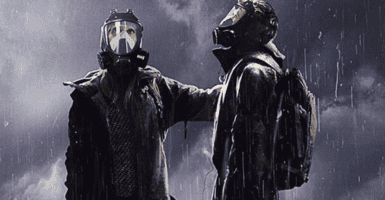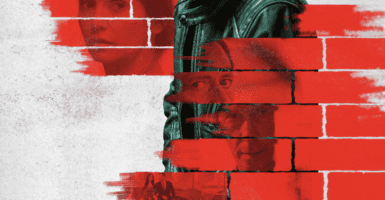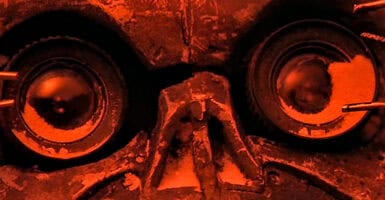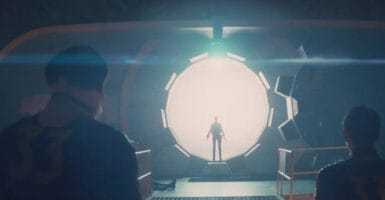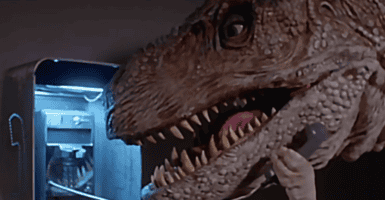Five Reasons You Should Be Watching Continuum
If you haven't been watching Continuum, here's why you should.
This article is more than 2 years old
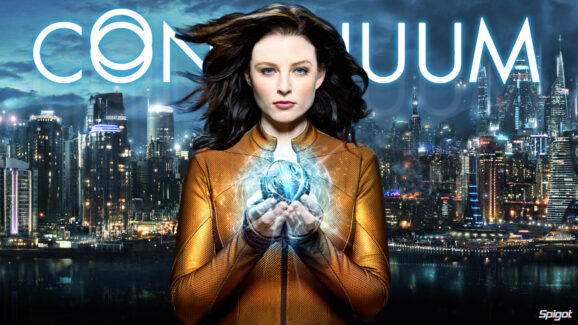 There’s a dearth of quality sci-fi on television right now. Admittedly, I’m a tough critic, but die-hard sci-fi fans tend to be. Even though I tried repeatedly, I never got into Almost Human, (or Falling Skies or Under the Dome). I stopped watching Helix after three baffling episodes, and suffered through an episode-and-a-half of Revolution before reaching the same decision NBC recently did. There’s Doctor Who, of course, which remains in a category of its own, but the pickings are slim, which is why anyone who appreciates sci-fi should be tuning into Continuum (just for the record, Orphan Black makes the short list too, and I don’t count Cosmos as sci-fi, even though creationists would have us believe it’s fiction). Continuum’s first season is pretty strong, but the show has only improved from there. Now, 7 episodes into season three, the show has officially become a go-to genre fix for me.
There’s a dearth of quality sci-fi on television right now. Admittedly, I’m a tough critic, but die-hard sci-fi fans tend to be. Even though I tried repeatedly, I never got into Almost Human, (or Falling Skies or Under the Dome). I stopped watching Helix after three baffling episodes, and suffered through an episode-and-a-half of Revolution before reaching the same decision NBC recently did. There’s Doctor Who, of course, which remains in a category of its own, but the pickings are slim, which is why anyone who appreciates sci-fi should be tuning into Continuum (just for the record, Orphan Black makes the short list too, and I don’t count Cosmos as sci-fi, even though creationists would have us believe it’s fiction). Continuum’s first season is pretty strong, but the show has only improved from there. Now, 7 episodes into season three, the show has officially become a go-to genre fix for me.
Warning: There are some spoilers ahead.
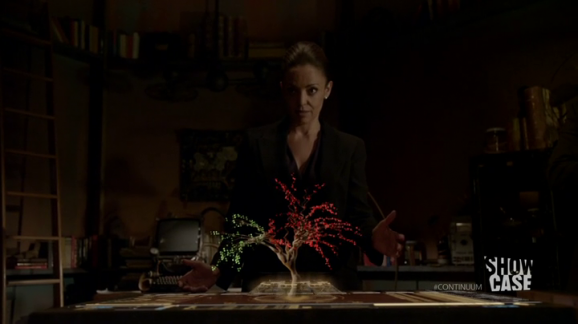
Continuum is a time travel show that has become more than just a show about jumping through time. The premise, for those who don’t know, is that in the year 2077, the world has become a dystopian surveillance state. Protagonist Kiera Cameron (Rachel Nichols, who also showed up on Alias and Star Trek) is a City Protective Services officer who attends the execution of a group of terrorists, only to get accidentally sucked into their last-minute time travel shenanigans. Whisked back 65 years, Kiera hooks up with the Vancouver Police Department and tries to stop the terrorists while also trying to get back home to her family.
But here’s the thing—the better she is at stopping the terrorists, the more likely it is that she’s eradicating the life she had in 2077. She won’t necessarily change the future, as the time travel paradox suggests that what she is doing has always been a part of the plan, but she may be starting a new timeline altogether. That dynamic tension, as well as the discovery of the time travel rules of the show, functions as compelling driving force.
Season three has upped the ante even more. Another major character, Alec (Erik Knudsen), also took a spin with the time travel device, so now the timeline has split and there are two Alecs. One of them will bring about the future as they know it, and Kiera has to figure out which. She jumps back too, and now there are two of her. They don’t heed Doc Brown’s advice about not messing with the space-time continuum—the dueling Alecs come face to face more than once and fisticuffs ensue. But now all this time-travel stuff has become exponentially more complicated due to the multiple strands.
Pages [ 1 2 3 4 ]




